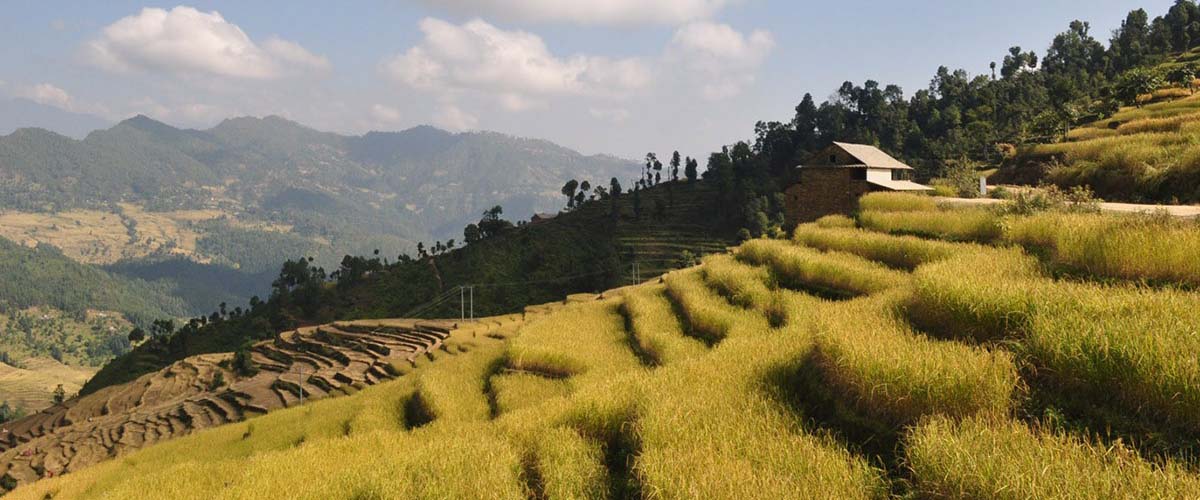Here is a brief rundown of the projects that we have envisioned for implementation in the near future. Please feel free to contact us if you would to contribute or inquire more about these projects.
- Upgrading Public Schools
- Drinking Water Project
- Sustainable Development and Technology – Biogas and Solar Projects
- Income-Generating Projects
Upgrading Public Schools
A majority of the families cannot afford sending their children to well facilitated private and boarding schools. In villages of remote Gorkha, we seek upgrading the quality of the government-run schools by upgrading their infrastructures and launching various programs like establishing libraries, organizing teacher training programs, distributing stationeries and providing scholarships. With collaboration with donors and other interested parties, we are now working on bringing advanced methods of teaching in schools in Arughat Rural Municipality. Project Nepal 2011, for example, is a project headed by Education professors in the U.S. who plan to have solar panels, computers and projectors installed in the schools through Sambhav Nepal’s field coordination. There have been cases of an incline in school dropout rates as a result of a lack of basic facilities like toilets, furniture, drinking water as well as qualified teachers in the schools. Many schools do not have any toilet; the few that have do not have the resources to maintain them.
Drinking Water Project
Scarcity of drinking water, especially in the summer, has been a day-to-day problem experienced by the locals in the village. Additionally, the access to improved drinking sources is minimal in many regions of Gorkha, leading to various diseases like diarrhea and dysentery, particularly among children. Our upcoming project focuses on surveying the possible water sources and supplying clean drinking water in the needy villages as well as in the schools.
Sustainable Development and Technology – Bio Gas and Solar Projects
The project would most likely sound ironic for remote villages of Arughat Rural Municiapliy where infrastructures of technology, including electricity and communication, are alack. Yet, students have completed school without even seeing a computer – in this day and age, this may seem highly unlikely. Hence, to contribute for the academic standard of Nepal the solar panels will be installed during Phase I of the project. The panels will be used to power multiple schools in the remote Himalayan villages. Once the energy source is in place, we will install and power projectors and laptop computers in the classrooms. Each school will receive one primary laptop and projector. Other computers will be provided for individual use. Computer-based resources will provide an opportunity for our organization to transfer files from abroad and develop lessons for teachers and students.
During Phase II of the Project, we will be training the Nepali teachers on how to use the computer-based technology. Currently, the schools have very limited resources. The staff has a great desire to teach English in a globalized world. Phase II will consist of a series of intensive workshops for the local teachers. These workshops will include English language courses and instruction on implementing the curriculum, lesson plans, and interactive teaching methods.
Most of the families in the village are engaged in livestock farming, which yeilds tremendous potential to produce bio-gas. Cow dung or buffalo dung is fed into the bio-gas chamber to produce the gas for cooking purposes. This obviates the need for the locals to travel distances and to fell trees, thus conserving the forest. The residue of the bio-gas production can be used as organic fertilizer.
Income-Generating Projects
Sambhav Nepal has witnessed the economic injustice that has marred the growth of the people in village. Despite months of toiling in the farms, the peasants are hardly able to feed their family well. Most of the farmers practice subsistence farming, and only a meager surplus sold in the market. Sadly, in villages of Arughat Rural Municipality, agriculture is the only profession that can be adopted, yet problems of soil quality, drought and pests have endured for a long time.
Our prime focus in this project is to introduce advanced agricultural practices that will yield higher output for the same amount of labor and resource input. We plan to bring the farmers in touch with agriculture experts and also train the farmers in producing crops that are more nutritious and have higher value in the market. Crops like paddy, maize, wheat, mustard, lentils and fruits and vegetables and livestock such as goat (milk), chicken (eggs), bee (honey), etc. are the potential sources of income generation in areas which we can assist them. Besides, handicrafts, briquette making, weaving & stitching etc. could be the possible income generating sources for the women whose work are mostly based in their homes.
 Swiss Version
Swiss Version
